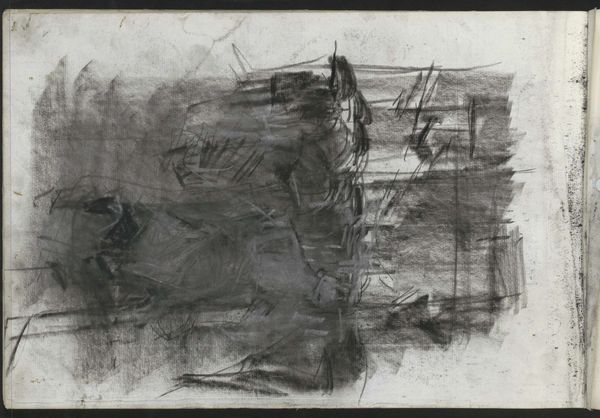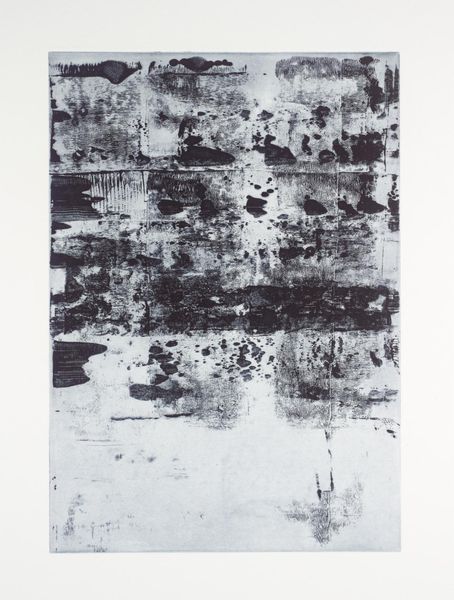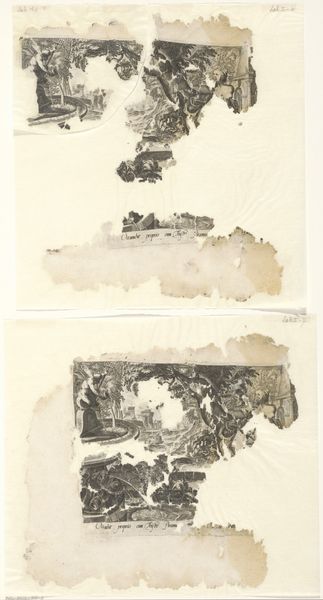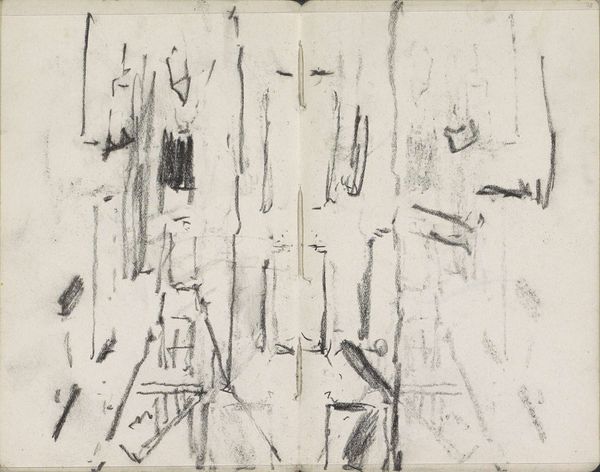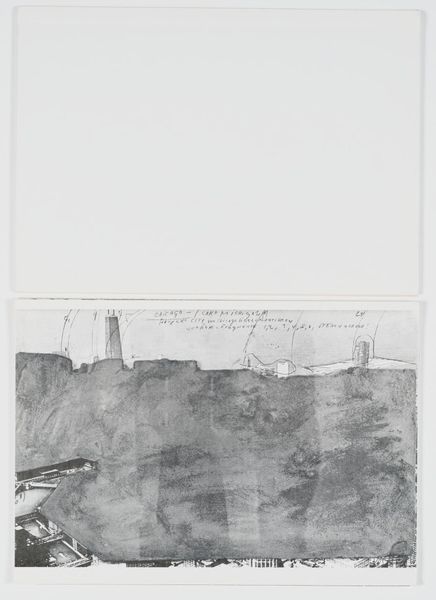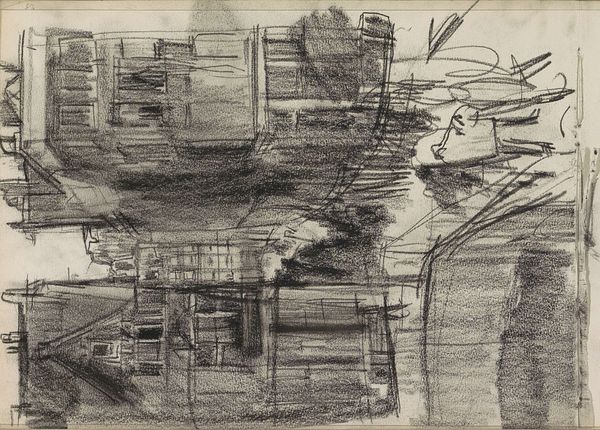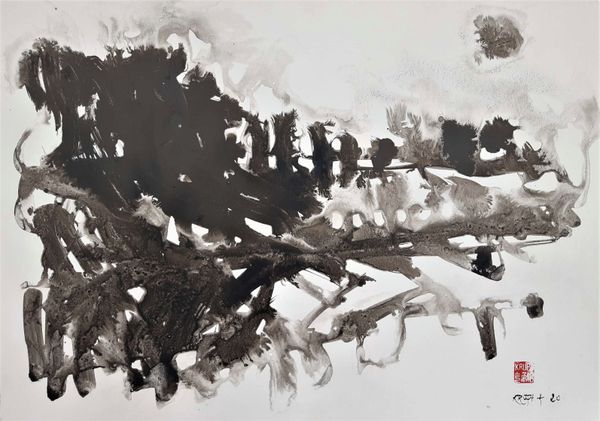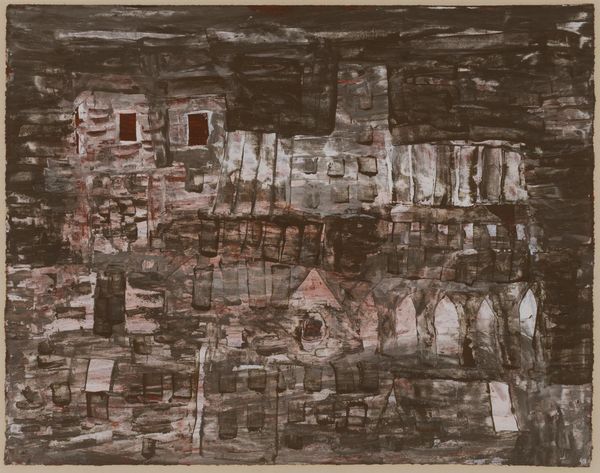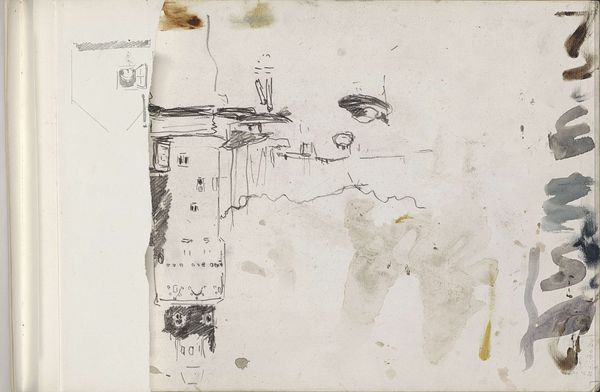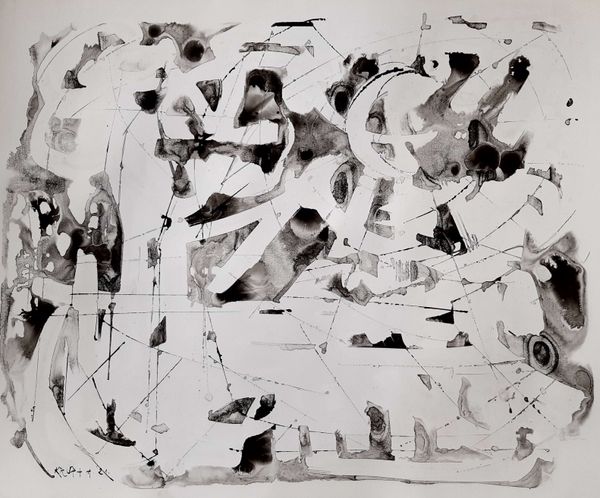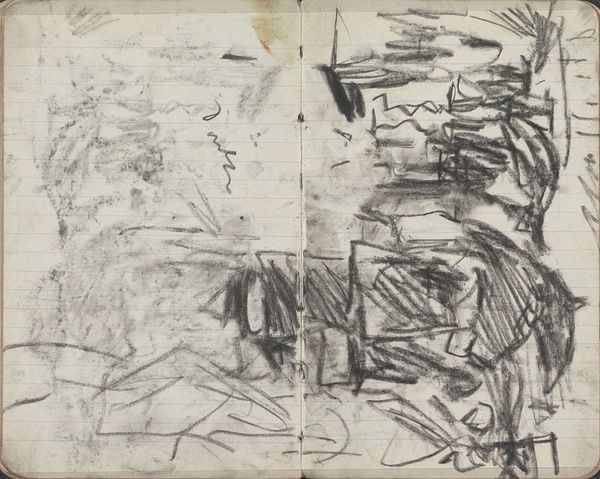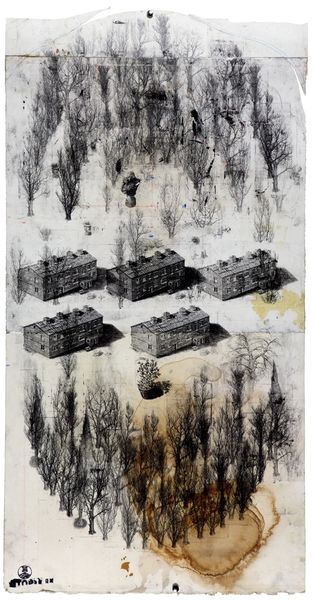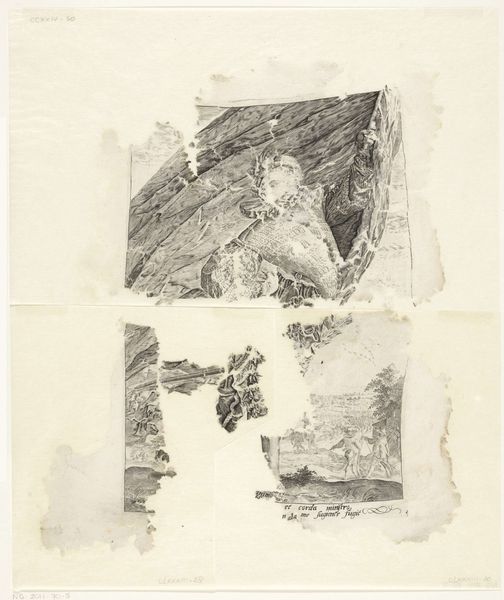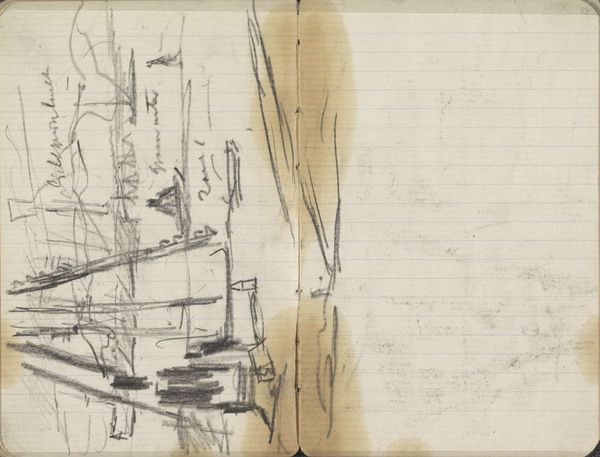
Dimensions: support: 1852 x 2460 mm
Copyright: © Anselm Kiefer | CC-BY-NC-ND 4.0 DEED, Photo: Tate
Editor: Anselm Kiefer’s "Hortus philosophorum" presents us with stacks of books, almost like ruins. There’s a somber, almost desolate feeling. As a historian, what do you see in this piece? Curator: The title, "Garden of Philosophers," hints at alchemy, a search for transformation. Kiefer, a German artist born in 1945, grapples with Germany's past. Notice how the stacks evoke architectural forms, perhaps referencing intellectual and cultural structures. How might this relate to the post-war German identity? Editor: So, you see the physical structure of the books as representing something bigger about cultural memory? Curator: Precisely. The garden becomes a metaphor for intellectual and cultural growth, or perhaps its decay. Kiefer often uses heavy materials, connecting with themes of destruction and reconstruction in a society grappling with its own history. Editor: That reframing makes me see the hopeful element too. Thanks! Curator: My pleasure. It is in facing the ruins that reconstruction becomes possible.
